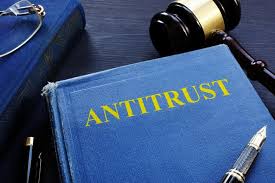DOJ’s Antitrust Division Charges Seris Security and Three Executives, and Announces Plea Agreement with G4S Secure Solutions in Bid-Rigging Conspiracy Involving Overseas Security Services

In a separate action, G4S Secure Solutions entered into a plea agreement and agreed to plead guilty to the bid-rigging conspiracy and pay a $15 million fine. G4S is cooperating with the ongoing prosecution.
The Antitrust Division’s announcement was its first international prosecution by DOJ’s Procurement Collusion Strike Force since its inception in November 2019. The Justice Department has identified bid-rigging among government contractors as a prosecution priority.
DOJ reiterated that the recent indictment demonstrates that its Procurement Collusion Task Force “is committed to safeguarding public procurement at home and abroad from collusion that cheats American taxpayers out of the benefits of competition for critical goods and services,” acting Assistant U.S. Attorney General Richard Powers said in a statement.

The bid-rigging scheme occurred between Spring 2019 and Summer 2020 and involved contracts for a multi-million-dollar U.S. Department of Defense deal for security at DOD bases in Belgium, as well as NATO contracts that are partially funded by the U.S. The security services include individual guards protecting physical buildings, mobile monitoring of certain locations, and electronic surveillance of defined areas. Individual customers include the Department of Defense, seeking security services issued tenders and invited firms to bid on the contracts.
Seris, G4S and other co-conspirators decided among themselves which contractor would win a particular bid and which companies would sit out the bidding tender. The co-conspirators also agreed to submit inflated prices in some tenders to ensure that they were not selected for the specific contract.

The Indictment outlines meetings among the competitors, to allocate customers, rig bids and fix prices, including a September 17, 2019 breakfast meeting at a hotel in Belgium.
In addition, the conspirators used email communications to coordinate meetings and agreements, including a December 16, 2019 email to each member of the conspiracy suggesting that each of them prepare a list fo contracts “that are important in 2020” for discussion at a meeting on December 20, 2019.
As another example, the indictment outlined that during March 2020, Vandormael sent a series of encrypted messages to another co-conspirator where Vandormael sought confirmation from the co-conspirator that his/her company would bid at an artificially high price suggested Vandormael for a particular contract tender.

G4S and another company are cooperating with the investigation. The original company that is cooperating has not been identified and probably earned leniency under the Antitrust Division Leniency Policy.
G4S, as the second cooperating company, had to pay a fine of $15 million but earned a 30 percent discount from the fine amount because of its timely and full cooperation. G4S is also cooperating with Belgian authorities in a parallel investigation.















